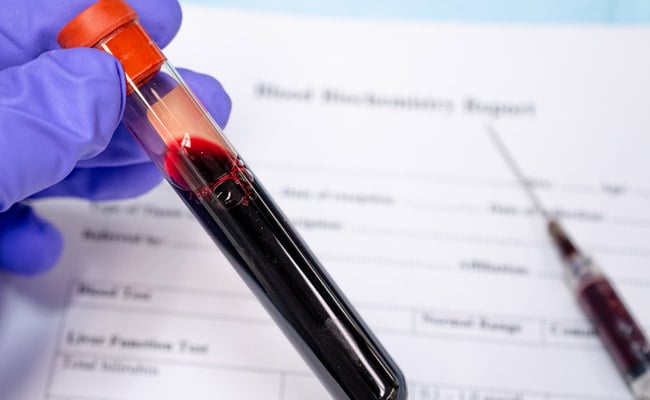- Home/
- Indiscriminate Use Of Convalescent Plasma Therapy Not Advisable: Top Medical Body
Indiscriminate Use Of Convalescent Plasma Therapy Not Advisable: Top Medical Body

India's top medical research body, Indian Council of Medical Research (ICMR) on Wednesday said that indiscriminate use of Convalescent Plasma Therapy (CPT) should be avoided as it does not reduce mortality in COVID-19 patients.
The top medical research body issued Standard Operating Procedure (SoP) on plasma therapy and advised states to desist from its indiscriminate use.
"ICMR conducted an open-label phase II multicentre randomised controlled trial in India across 39 public and private hospitals on use of convalescent plasma in the management of cases with moderate COVID-19 disease (PLACID Trial). It was concluded that, CPT did not lead to reduction in progression to severe COVID19 or all cause mortality in the group that received CPT as compared to the group that did not receive CPT," said the ICMR in its new advisory.
"PLACID is the world's largest pragmatic trial on CPT, conducted in 464 moderately ill laboratory confirmed COVID-19 affected adults in real-world setting wherein no benefit of use of CPT could be established," it said.
The ICMR also mentioned that similar studies conducted in China and the Netherlands have also documented no significant benefit of CPT in improving the clinical outcomes of hospitalised COVID-19 patients, hence indiscriminate use of CPT is not advisable.
"It is speculated that convalescent plasma having low concentration of specific antibody against SARS-CoV-2 may be less beneficial for treating COVID-19 patients as compared to plasma with high concentration of such antibodies," said the guidance note.
"This ICMR advisory, therefore, embraces the principle that a potential donor for convalescent plasma should have sufficient concentration of antibody working against COVID19," it added.
The ICMR's advisory noted that a potential donor of CPT can be a male and female--who have never been pregnant, can only donate plasma. The donor should be in the age group of 18-65 years who after 14 days of symptom resolution -- testing negative for COVID-19 is not necessary, can donate plasma.
For the potential recipient, the ICMR said that donor can be in the early stage of COVID-19 and the therapy should be administered between 3-7 days from onset of symptoms, but not later than 10 days. There should be no IgG antibody against COVID-19 by appropriate test and informed consent has to be taken.
It also highlights that presence of antibodies against COVID-19 in a potential recipient makes transfusing convalescent plasma a futile intervention.
"CPT, therefore, should only be used, as advised by ICMR NTF, for management of COVID-19 when specific criteria are fulfilled," it said.
The advisory came after Union Home Minister Amit Shah held a meeting to assess the COVID-19 situation in Delhi wherein it was discussed to issue Stand Operating Procedure (SoP) for plasma therapy and plasma administration for treatment of COVID-19 patients immediately.
On October 20, ICMR Chief Dr Balram Bhargava had said the government is planning to delete plasma therapy from the national treatment guidelines on COVID-19.
also read
Tech Millionaire Bryan Johnson Reveals How He Reversed His Hair Loss, Shares Tactics
Edited by Ritu SinghBlood Plasma Therapy Doesn't Help Seriously Ill COVID-19 Patients: Study
Press Trust of IndiaPlasma Therapy Dropped As Treatment For COVID-19 By Government Task Force
Reported by Parimal Kumar, Edited by Vaibhav Tiwari
Watch
How Will Plasma Therapy Save Lives?
- Based on the concept of passive immunity
- Plasma contains components like blood cells, antibodies, protein, hormones etc. Infusing antibodies from a recovered patient will activate immunity in the patients
- Antibodies from donor plasma will be retained in blood for 2-3 weeks
Plasma Therapy For COVID Patients: Don’ts

Not recommended for pregnant & lactating women

Should be avoided in patients with immunoglobulin a deficiency

Should be avoided in patients with immunoglobulin allergy

Active infections & tuberculosis should be ruled out before use

Donor should not be suffering from H.I.V or hepatitis or renal problems










